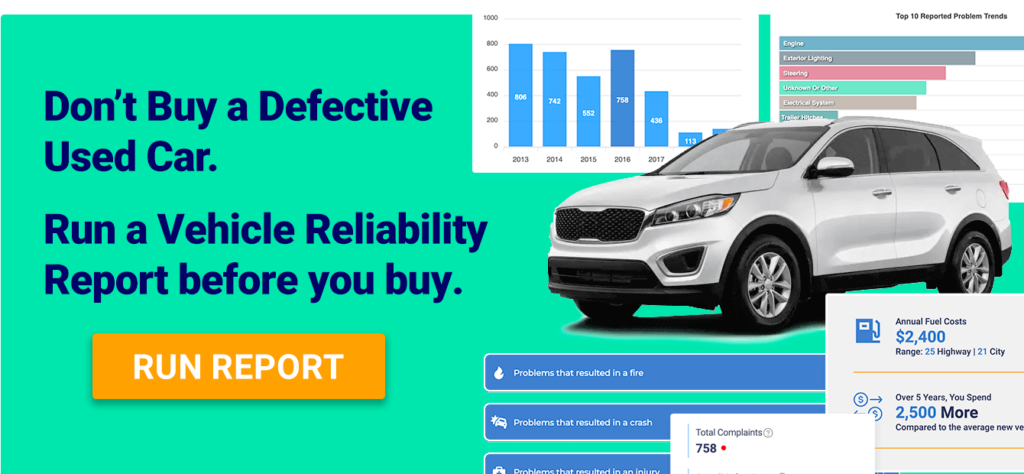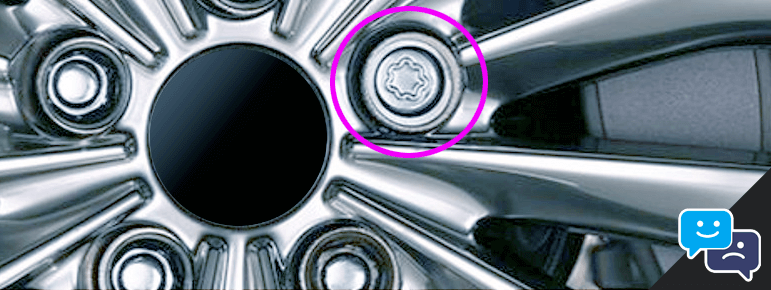Wheel locks are anti-theft devices that replace standard lug nuts on vehicle wheels with a unique locking nut, requiring a special key for removal. They add an extra layer of security, ensuring peace of mind for car owners by protecting their wheels and tires from theft when parked in public.
Fact is, wheel locks are an important theft-deterrent device designed to help protect cars from wheel thefts. According to statistics, approximately 1 million wheels and 900 thousand tires were stolen in 2020 alone. This makes them two of the most targeted items by criminals.
Having been invented since the 1960’s, wheel locks continue providing successful deterrence against wheel theft. Giving vehicle owners confidence that their customized wheels and rims remain unscathed under all circumstances.
Simply put, wheel locks provide an extra layer of protection to expensive alloy wheels.
Let’s dive into how these special lug nuts work. Then we will get into what you need to know if you lose your key.
Understanding Wheel Locks: Enhancing Your Car’s Security
Wheel locks is a car accessories that helps vehicle owners protect their wheels from theft. A car wheel locking system comprises two components:
- Four Wheel Locks (One for each wheel)
- One Wheel Lock Key
Unlike standard nuts, wheel locks have specific pattern on them. This pattern only allows access with a matching key. Regular lug nuts on the other hand can be removed with a standard wheel nut removal tool.
A set of wheel locks typically contains just one locking device per each wheel. While they can’t guarantee complete protection from theft, wheel locks can act as an effective deterrent.
This means, potential thieves won’t be able to remove the lock without significant effort.
Provides Peace of Mind for Vehicle Owners
By preventing access with an ordinary socket, it becomes virtually impossible for thieves to steal alloy wheels from a car. This is because they would need to have possession of the matching lock key first.
Simply put, wheel locks operate on the principle of unique key patterns. More specifically, each wheel lock and key is laser-etched with a unique code. This requires the exact match of both sides before removal is possible.
This signature pattern etched into the wheel lock head makes it impossible for generic socket sets to be used. This means that someone can’t make off with your wheels and other parts without this special key.

The Wheel Lock Key
The wheel lock key is an essential component of any vehicle security system. It unlocks the lug nuts that secure the wheels in place.
Fact is, the matching socket key is the only way to unlock and remove the wheel locks without damaging the lug nut or wheel.
And without the special key tool, attempted thefts on vehicles with wheel locks installed often fail. This is because it takes the right tools and a lot of time.
Where Can I Typically Find The Wheel Lock Key?
The lug nut key, also known as a wheel lock key or wheel lock removal tool, is typically kept in the vehicle’s glove compartment or near the spare tire.
Some cars store the lug nut key in a special slot or pouch in the glove compartment or trunk to prevent it from getting lost.
The lug nut key may attach to the spare tire or store with the car’s jack and tire-changing tools in some cases.
What if You Lose Your Wheel Lock Key?
To deal with a lost or damaged wheel lock key, here are some simpler steps to follow.
First, try to get a replacement key from the car manufacturer. This might cost different amounts depending on the car brand. Obviously, this is the best way to remove a wheel lock.
If you can’t buy a new key from the car company, and you need to repair a flat tire, there are ways to take off the wheel lock without a key. In fact, mechanics at car dealerships typically have special key sets to do this without hurting the wheels.
However, if you are in the DIY mood, removing a locking wheel lock is possible. Using a socket slightly smaller than the lock, then hammer it on to the key pattern and unscrewing the lock.
The malleable nature of the wheel lock’s soft metal will conform to the smaller socket’s pressure, ensuring a tight and secure fit.
Of course this is a more brute-force method. But if you are in a jam, this is an inexpensive way to get the locking lug nuts off.
Making the removal job a little cleaner is the availability of specialized alloy wheel nut removers. These special sockets are available at most auto parts stores.
Alternatively, you can use a hammer and chisel or punch to create a groove in the lock, allowing you to unscrew it.
And for those with welding skills, attaching a nut or bolt to the lock and then turning it with a wrench is another option.
Lastly, it’s a good idea to make copies of the key code, and take photos of your wheel lock keys and part number. Keep these in a safe place, such as the glove box or home safe. This way, if you lose your keys, you’ll know what they look like and can find help more easily.
Which Automotive Brands Provide Wheel Locks as Standard Equipment?
Many auto manufacturers offer wheel locks as a security feature to prevent wheel and tire theft. These locks are either provided as standard equipment or as an optional accessory across a wide range of vehicles.
| Auto Brand | Wheel Lock Availability |
|---|---|
| Toyota and Lexus | Standard equipment or optional accessory |
| Honda and Acura | Optional accessory |
| Ford and Lincoln | Available on certain models |
| General Motors | Optional accessory for Chevrolet, GMC, Cadillac, Buick |
| Nissan and Infiniti | Optional accessory |
| Subaru | Available as an accessory |
| BMW and Mercedes-Benz | Standard on many models |
| Volkswagen and Audi | Standard on higher trims or as an optional accessory |
| Hyundai and Kia | Optional accessory |
| Mazda | Optional accessory |
| Volvo | Standard equipment |
| Porsche | Standard on many models |
| Dodge | Optional accessory or part of specific packages |
| Chrysler | Optional accessory or part of specific packages |
| Fiat | Optional accessory or part of specific packages |
For specific details, it’s advisable to consult your local dealership. Additionally, if a particular vehicle doesn’t come with wheel locks, aftermarket options are widely available and can be fitted to most vehicles.
Are Wheel Locks Really Necessary?
Truth is, wheel locks while often considered superfluous by many drivers, can be advantageous in certain specific circumstances. Primarily, they come into play if you reside in a locality notorious for thefts involving tires, rims, or wheels.
They are particularly beneficial for those who possess custom rims, high-end, or specialty rims, safeguarding these valuable components from potential theft.
Additionally, if a particular vehicle doesn’t come with wheel locks, you can easily find aftermarket wheel locks that fit most new cars and older vehicles.
In such scenarios, the added security of having wheel locks together with the standard wheel nuts can provide peace of mind. However, for the average driver, they may be more of a hindrance than a benefit.
Closing Thoughts
Fact is, wheel locks serve as a vital anti-theft tool for vehicle owners. They offer a significant layer of protection against the prevalent issue of wheel and tire theft.
For cars not already equipped with this feature, upgrading to wheel locks is a smart and effective measure. Their unique design, which requires a special key for removal, has proven effective in deterring criminals since their inception in the 1960s.
And with the alarming theft of wheels statistics from 2020, highlighting the theft of approximately 1 million wheels and 900 thousand tires, underscore the importance of such security measures.
Ultimately, wheel locks not only safeguard a car’s wheels and tires but also provide extra measure of protection over regular wheel nuts. This assures that the vehicle’s wheels remain secure no matter where it is parked.

Managing Editor
Christopher is an automotive technical writer. When he’s not at the local autocross event, he can often be found working on one of his cars. Specializes in automotive class action law, industry trends, and automotive maintenance. Email me direct, or learn more about us

